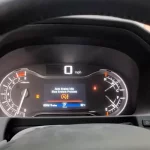Honda is a famous automotive brand known for its reliability and innovation in the automotive industry. One of the features that Honda offers in its vehicles is a parking sensor system, which helps drivers park their cars safely and quickly.
However, like any technology, parking sensors can experience problems that can affect their functionality and performance.
Honda parking sensor problems can range from simple issues such as sensor calibration to more complex problems like sensor failure or wiring issues.
These problems can lead to inaccurate readings, false alarms, or complete system failure, making it challenging for drivers to park their cars safely.
If you own a Honda vehicle with a parking sensor system, it’s essential to be aware of common problems that may arise and take the necessary steps to address them promptly.
In this article, we will discuss some of the most common Honda parking sensor problems and their possible solutions, helping you maintain the functionality and reliability of your Honda parking sensor system.
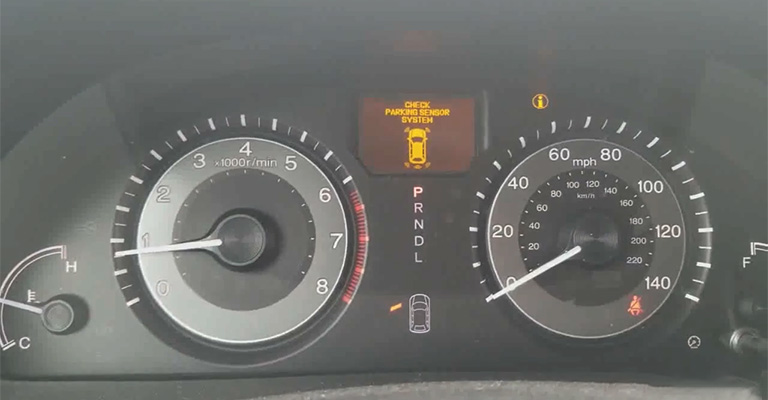
The inclusion of parking sensors on vehicles has become a mandatory safety feature as of the 2018 model year. It is common for Honda vehicles to have parking sensors at both the front and rear.
You can utilize them to avoid hitting people, cars, and other objects when they are activated. Besides preventing accidents, Honda parking sensors can save you money on repairs and damages.
What Are Honda Parking Sensors?
Some Honda models and trim levels come with the Honda parking sensor system. The car’s sensor system detects objects that are within close range. Using the sensors, you can be in danger of hitting both mobile and stationary objects.
The parking sensor system will notify you when your vehicle gets too close to an object while parking. Increasing distance from an object causes the Honda to emit a louder beep.
Honda did not neglect aesthetics when developing the Honda parking sensor system mainly out of concern for safety.
Parking sensors are designed to match your vehicle’s paint color for a seamless look and to avoid drawing attention.
Troubleshooting Honda Parking Sensor Problem
Regardless of the mode, whether it is a Civic, Accord, Odyssey, Pilot, Ridgeline, CRV or HRV, there are many different reasons can cause Honda parking sensors to malfunction, including sensor failure, faulty modules, and wiring shorts.
In the first place, you should check whether the sensors are enabled. You can also inspect the wiring to see if there are any shorts or damage around the harness.
The sensors should also be inspected and cleaned with some WD-40 and a rag since they can get dirty from time to time, which will lead to the sensors not working.
Replacement parking assist sensors can cost anywhere from $20 – $30, depending on whether they’re aftermarket or OEM.
If you take the installation process to a mechanic, it will probably cost you between $50 and $100.
Resetting Honda Parking Sensor For A Quick Fix For All Models
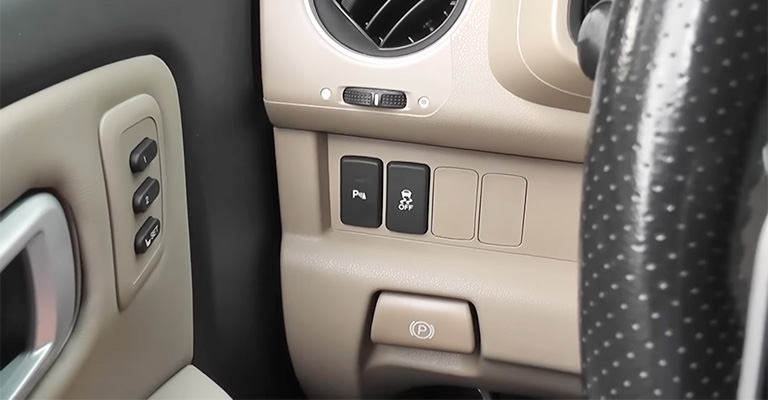
Resetting the device before you start troubleshooting might be a good idea. The following steps are required to reset the device:
- Switch to on mode and press the parking button 10 times
- Switch the ignition off
- Hold the parking button on and switch the ignition on. Wait until a wired/ long beep noise is emitted through the stereo, and then it is done.
- The ignition on and off to test and make sure the green light stops flashing
Why Do Parking Sensors Stop Working?
It is true that parking sensors are generally reliable, but some things can cause them to malfunction.
Cleaning is one of the most common reasons parking sensors stop working. If the sensors are not cleaned regularly, dirt and grime can build up, making them less likely to detect objects.
Cleaning your parking sensors with a soft cloth is a good idea if they seem to be problematic. Use nothing abrasive on your sensors, as this could damage them.
It is also possible for the parking sensors to stop working if there is a problem with the wiring. Damaged wiring may prevent sensors from receiving power or sending signals correctly.
Take your car to a mechanic for an assessment if you suspect the wiring might be malfunctioning. They can assist you with identifying any problems and repairing your parking sensors if necessary.
It is possible that parking sensors simply wear out over time. Damaged or old sensors may not be able to do their jobs as well as they should.
Typically, you will have to replace the parking sensors entirely in this case. For most drivers, it is a simple and affordable process that they can handle themselves.
The following steps will help you fix your parking sensors and get back on the road, regardless of whether your sensors malfunction due to dirt, damage, or age.
How to Test Parking Sensor Wiring?
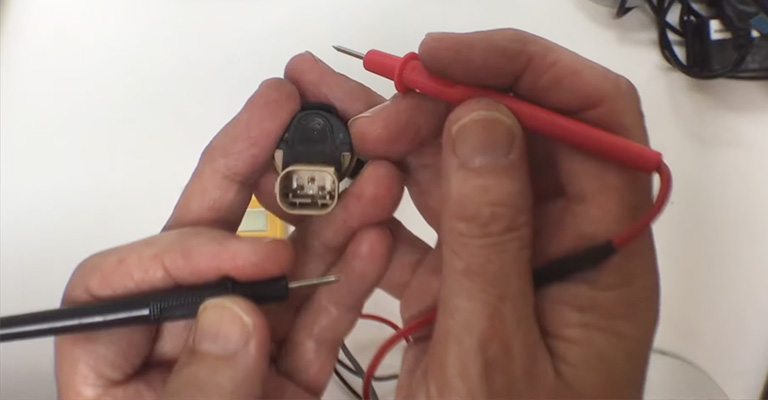
Connect the battery’s positive terminal to a power source before disconnecting the negative. Doing this will keep the system from becoming damaged during testing.
You will now need to locate the parking sensor wire harness. The location of this usually lies near the front or rear bumper.
Using the multimeter, check the continuity of the wires once you have located them. Continuity is indicative that the wires have been damaged and need to be replaced.
Test the system to see if it works properly when the wires are connected to the battery, and the negative terminal is connected to the positive terminal. This may mean that one of the sensors itself has a problem.
Maintaining and cleaning your parking sensors is a relatively easy procedure that can increase their lifespan. If you follow the steps above, your sensors will remain in good working order.
How to Properly Clean Parking Sensors?
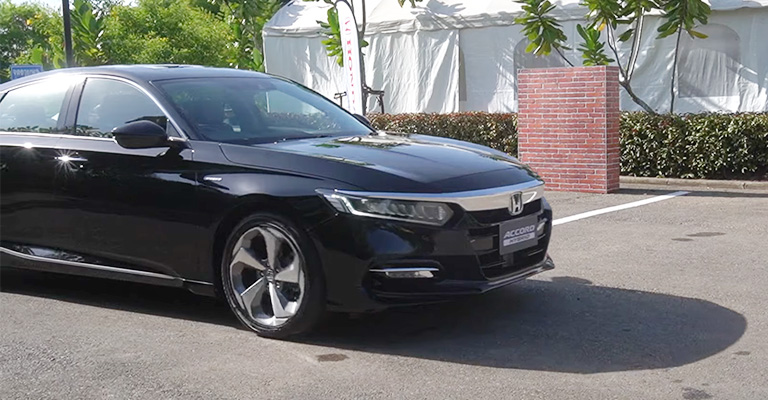
Parking beeps are annoying. Many of us have experienced them. There is nothing more frustrating than when you don’t know how to fix it. The purpose of this article is to explain how to properly clean parking sensors.
Having parking sensors can be helpful in making parking more manageable and less stressful. They can get dirty or covered in grime over time, leading to them not performing as well as they should.
You can easily clean them in a few minutes, and it is relatively simple. First, you should remove debris or dirt from the sensors’ surface with a microfiber cloth.
For stubborn grime or dirt, spray it with WD-40 and let it stand for a few minutes before wiping it off.
Cleaning the sensor itself is required once the surface has been cleaned. In order to do this, soak a cotton swab in rubbing alcohol and insert it into the sensor.
You can gently twist the cotton swab around the sensor until it is clean. You need to repeat this process for every sensor.
Remove any remaining alcohol from the sensors by wiping them down with a microfiber cloth after cleaning them. You should now have clean parking sensors that are working correctly. It is also possible to check whether the wiring is still not working.
How To Activate the Honda Parking Sensors?
A button is on your steering wheel‘s left side to control Honda Parking Sensors. In a parking assist system, the letter “P” and an icon of a cone are displayed. For parking sensors to be turned on, you only need to press the button.
Indicating that the sensors are active is a green light on the button. As soon as you turn off the parking sensors, the green light will go out.
Turning Off the Honda Parking Sensors
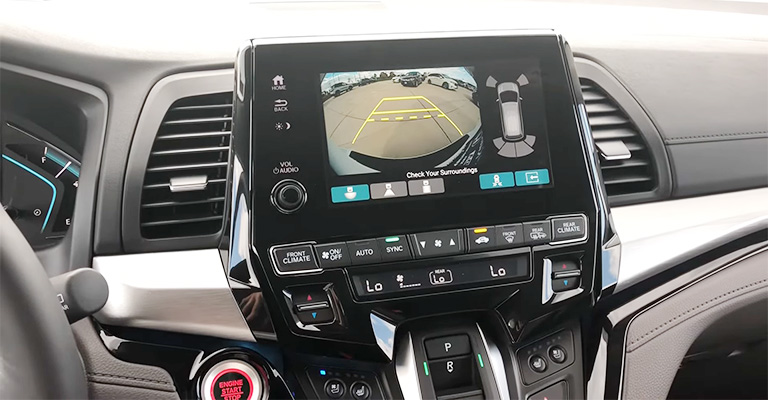
Even though Honda parking sensors can be helpful in many situations, there are times when deactivating the system is necessary, such as when towing your vehicle.
The parking sensors can be turned on and off as easily as they can be turned on. You must turn off your vehicle to get started. You will then need to restart your car while you press the button.
You should see some results if you keep holding the button for about 10 seconds. Blinking lights and beeps will indicate the button is on. You can turn off the sensors by quickly pressing and rereleasing the button.
Can Bad Parking Sensors Damage My Car?
You may end up damaging your car if your parking sensors stop working properly. The wrong calibration of a parking sensor, for example, would cause you to believe that there is an obstacle in your path even though there is not.
To avoid an imaginary object, you might brake suddenly or swerve, resulting in a crash. As well as being able to detect obstacles, parking sensors use sound waves.
A sensor covered in dirt or debris might not perform well if it cannot produce enough sound waves. Due to this, you may not be aware of obstacles in your path, which could lead you to crash into them.
Why Are My Parking Sensors Beeping in the Rain?
It can happen for a few reasons, but moisture getting into the sensor is the most common cause.
The parking sensor can malfunction when moisture gets inside. In an area with a lot of moisture in the air, such as near a lake or river, this usually happens to vehicles parked there.
Additionally, moisture can enter the sensor if the vehicle is driven through a puddle or if it rains while it is parked.
It is essential to get your vehicle checked out by a qualified mechanic if your parking sensors are beeping in the rain. If there is any damage to the sensor, the mechanic is able to clean and inspect it.
It will be necessary to replace the sensor if it is faulty. Additionally, you may want to cover your sensors with weatherproofing materials. In the future, this could prevent moisture from entering the sensor and causing problems.
Rainy or damp conditions may sometimes cause parking sensors to malfunction. Parking sensors are designed to make parking safer but can sometimes lead to issues.
If you are having problems with your parking sensors beeping in the rain, there are steps you can take to address the issue and get your vehicle back on the road safely.
How Long Do Parking Sensors Last?
It is typically the case that parking sensors last for the vehicle’s life. The devices may, however, malfunction over time if they become damaged.
You should take your vehicle to a qualified mechanic if you’re experiencing problems with your parking sensors. An expert mechanic can diagnose the problem and carry out the necessary repairs.
Can My Car Work With Aftermarket Parking Sensors?
Ensure that your aftermarket parking sensors are compatible with your car before you install them. There may be some cars on the market that will not work with aftermarket parking sensors.
Due to their actions, they could damage your car or cause an accident. It is always advisable to consult a qualified mechanic before installing aftermarket parts on your vehicle.
Your mechanic can tell you whether aftermarket parking sensors are compatible with your car and give you advice on how to install them.
Conclusion
Whether it is dirt, debris, bad wiring, or a bad sensor, parking sensor problems can occur. Parking sensors need to be replaced, not the wiring or dirty sensors, and neither are the culprits.
I recommend consulting with an expert to avoid unnecessary purchases since swapping the sensor is quite easy, but they are quite expensive.

